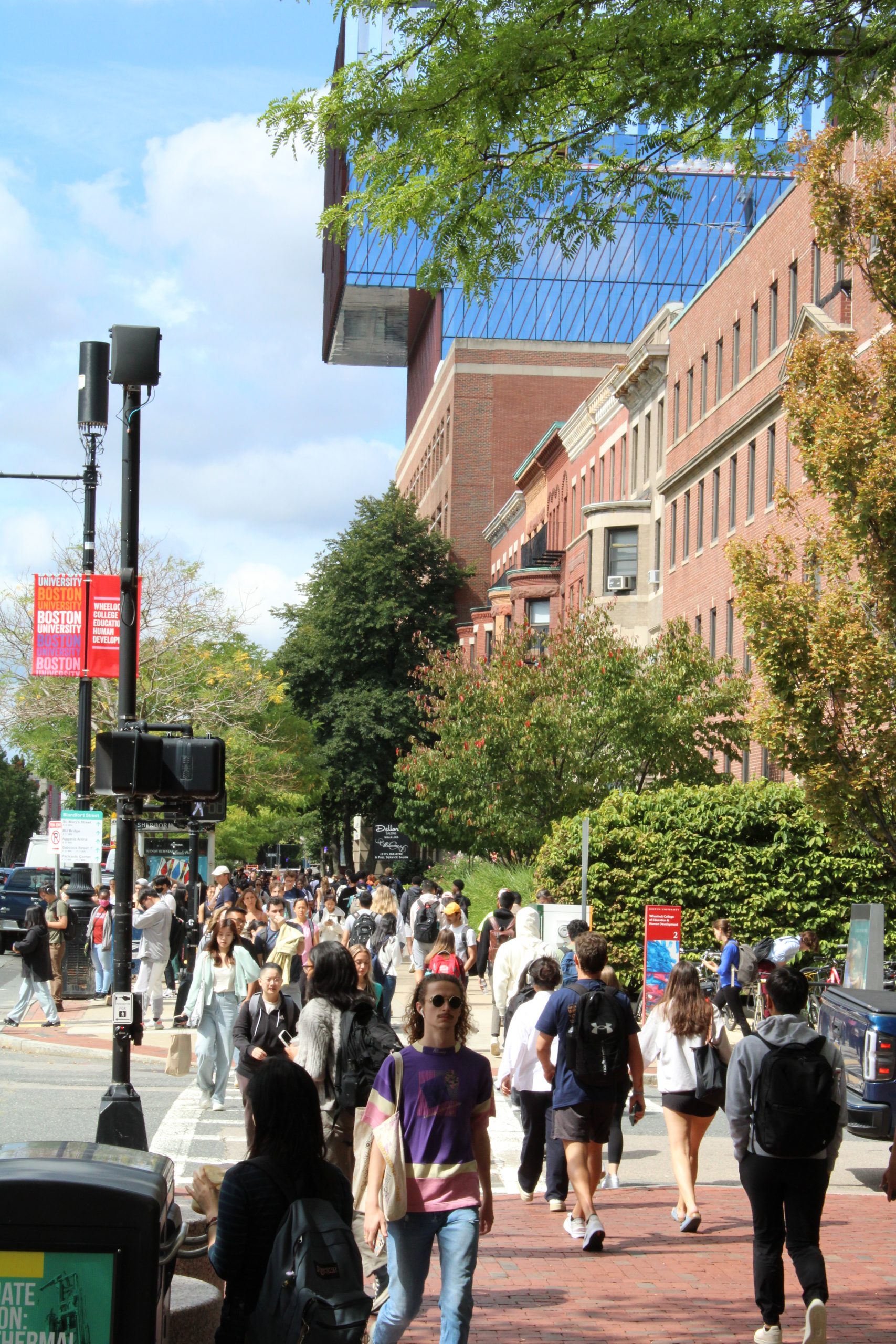BU Rated “Equitable and Excellent” for Top Performance among Aspiring Teachers of Color

BU Rated “Equitable and Excellent” for Top Performance among Aspiring Teachers of Color
A recent report by the National Council on Teacher Quality (NCTQ) highlighted Boston University as an “equitable and excellent” institution for aspiring teachers of color. The report, “Digging Deeper: Which Types of Institutions Achieve Excellence and Equity for Aspiring Teachers of Color?,” was released in July 2022. For NCTQ, “equitable” institutions demonstrate “little or no disparity in pass rates between aspiring teachers of color and white aspiring teachers at the institution.” At institutions rated “excellent,” “test takers of color at the institution achieve greater success on licensure tests compared to the average pass rate for all test takers across the state.”
Established in 2000, NCTQ conducts research on elementary education programs, state licensure examinations, teacher contracts, and other topics related to teacher training, recruitment, and retention. According to NCTQ, their research aims to “[achieve] an effective, diverse teacher workforce . . . through greater transparency and higher standards among the institutions that exert influence and authority over teachers: states, school districts, and teacher preparation programs.”
Rating how teachers are trained
On the surface, BU’s equitable and excellent rating is good news for aspiring teachers of color. Some education advocates may regard the rating with skepticism, however, since NCTQ is not immune to controversy. For example, when schools of education refused to share course materials like syllabi and textbooks with NCTQ, the organization obtained those materials through alternative methods.
But despite a sometimes-fraught relationship between schools and colleges of education and NCTQ, BU Wheelock Dean David Chard believes that “we owe it to the public to know what we’re doing when we train teachers,” and that “teachers should feel obligated—not just free to—but obligated to share those syllabi.”
Ryan Lovell, assistant dean for academic affairs and director of professional preparation at BU Wheelock, points out that NCTQ is not the only organization that rates educational quality. “There are organizations that have tried to rate colleges and universities for a while, such as US News and World Report,” he says.
The role of licensure exams
Licensure exams—one of NCTQ’s chief metrics for assessing teacher quality—can also be a source of contention among educators. Although states use these tests as a way to ensure teacher quality, some have claimed that these standardized examinations are racially and culturally biased, and that they present an insurmountable barrier for teachers of color. NCTQ, meanwhile, maintains that licensure exams are effective tools to assess teacher quality and preparation. Chard agrees with NCTQ, saying, “The state of Massachusetts has analyzed their teacher licensure exams quite thoroughly.”
“You take a candidate, how well they do on the MTEL [Massachusetts Test for Educator Licensure]—there is some connection to how well they did in their teacher education program, and they demonstrate a certain criterion to be accepted,” adds Lovell.
Given NCTQ’s complex history, what does this mean for the University and its education programs? Should we be proud? “Absolutely,” says Lovell. “Is it the only view of how we’re doing? No. It is a view of how we’re doing. There is still a hill to climb. We can still do better, but I think it’s an excellent recognition that we’re doing something right.”